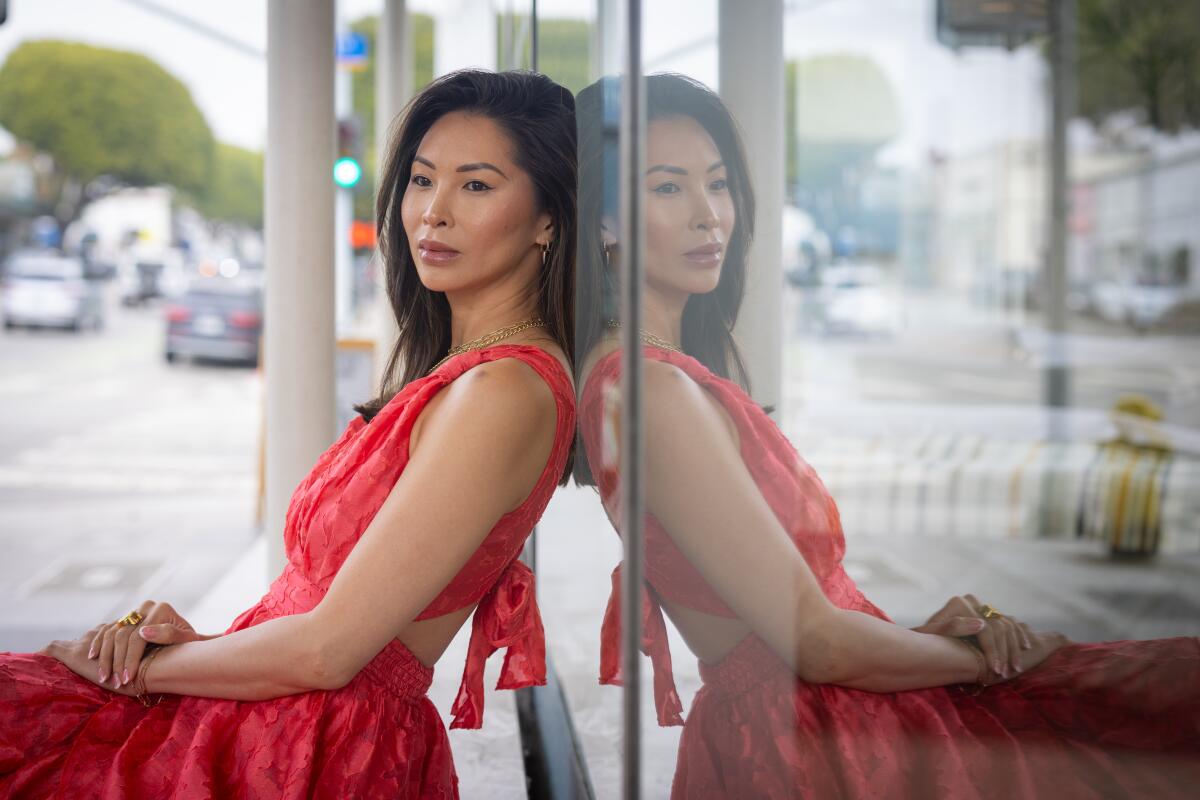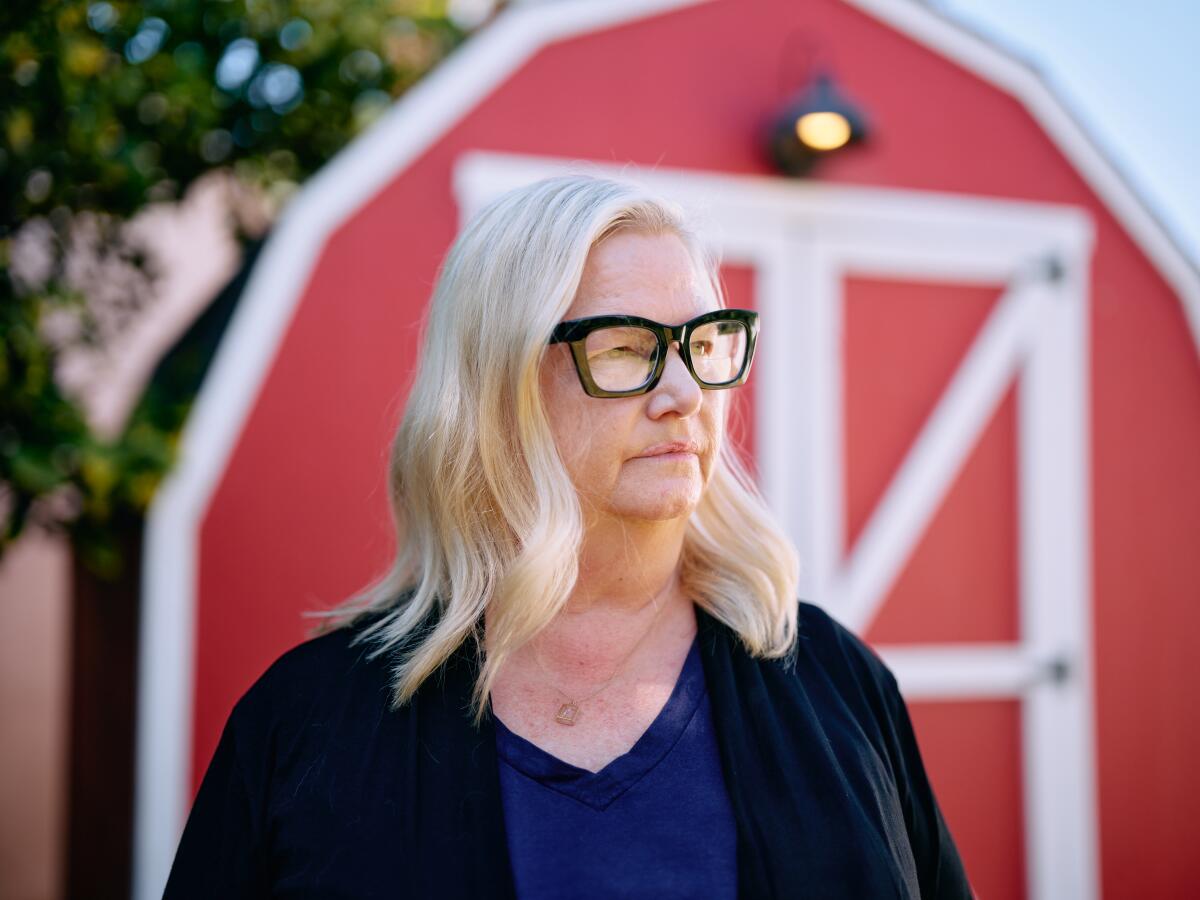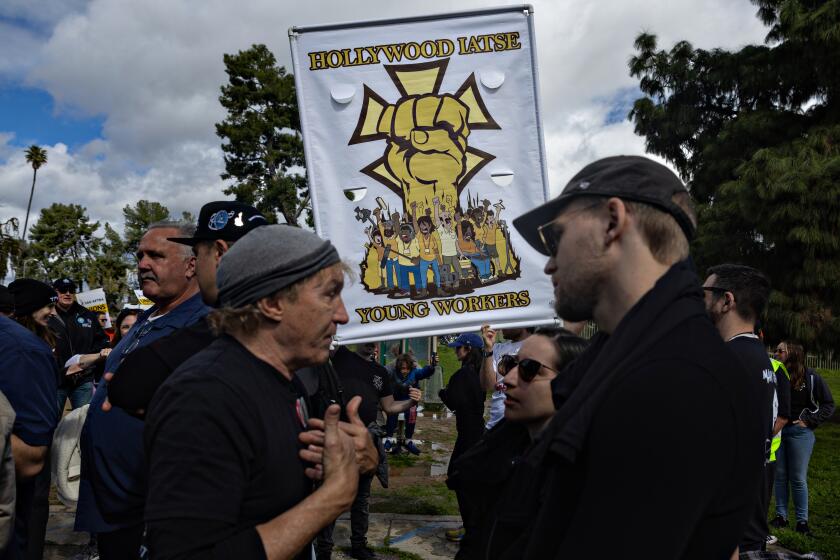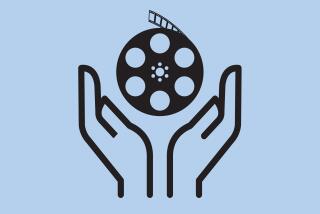Hollywood veterans get brutally honest about mentoring next generation amid industry turmoil

- With the entertainment industry currently struggling amid a contraction, job opportunities remain scarce.
- Some Hollywood training programs and mentorship groups have been reevaluating their approach as production levels remain low.
- Despite all the industry turmoil, longtime performers and craftspeople say they are as committed as ever to helping the next generation succeed.
This spring, applicants vying for a spot in the Art Directors Guild’s Production Design Initiative — a program that offers mentorship and on-the-job training to future production designers and art directors — received a troubling email.
The message from the initiative’s leadership team said that, “due to historic and unprecedented circumstances within the entertainment industry,” the program would be suspended until 2025.
“Because of these circumstances there is even less of an opportunity for employment within the entertainment industry at this time,” read an excerpt of the email first obtained by IndieWire. “Given this situation we cannot in good conscience encourage you to pursue our profession while so many of our members remain unemployed.”
It’s no secret that the entertainment industry is struggling. Contrary to workers’ hopes, film and TV production hasn’t roared back in the wake of last year’s writers’ and actors’ strikes. Job opportunities remain scarce as studios attempt to recoup their losses from the streaming wars by slashing staff and production.
As a result of the challenges in the workforce, some prominent industry training programs have pulled back.
Since Hollywood’s inception, the tricks of the entertainment trades have been passed down largely through hands-on instruction and word-of-mouth. Many aspiring performers, creatives and craftspeople have broken into the business with the help of mentors enthusiastic about sharing their industry connections and institutional knowledge.
But the current employment crisis has forced Hollywood veterans — many of whom haven’t seen steady work in several months — to get brutally honest about encouraging newcomers to pursue their dreams.
“I tell [mentees] that the industry ... is not the industry it was when I joined over 12 years ago,” said Ariel Kaplan, a 35-year-old production designer based in Silver Lake. “Trying to make it so they are not blindsided is so much more important to me than trying to protect their feelings.”

Diandra Kendall Luzon, a film and TV editor who has driven for Uber and recently sold her record collection to stay afloat, found the ADG’s decision to suspend its training program both alarming and validating.
“Like, ‘OK, so it’s not just me,’” said Luzon, who lives in Inglewood with her 2-year-old son. “These things are happening to everybody, and ... it’s worse than I thought.”
ADG national executive director Chuck Parker and president Nelson Coates said in a joint statement to The Times that the email was sent in error, had not been edited and did not accurately convey the labor organization’s stance. The guild’s position is that the program was postponed to focus on contract negotiations that took place this year between the larger crew members union, IATSE, and the studios.
“This labor movement alongside our peers and colleagues only strengthens our excitement for the future of the industry,” the guild said.
Film and TV crew members represented by IATSE have ratified their new basic agreement with the major Hollywood studios.
The Art Directors Guild isn’t the only organization that has made changes in recent months.
Women in Film, a nonprofit organization that provides mentorship and networking opportunities for women, nonbinary and trans people, launched the latest version of its fellowship program right before writers went on strike for 148 days.
During the work stoppage, certain professionals participating in the program — such as writers and entertainment executives — weren’t allowed to talk business with each other, disrupting a key valve in the organization’s pipeline.
Financing companies declined to meet with producing fellows seeking funding for their films while the industry remained on hold.
“We still made it work,” said Maikiko James, senior director of programs at Women in Film. “But ... what we saw clearly through last year was that there wasn’t going to be as much happening in terms of active work and hiring.”
The organization admitted fewer fellows this year (60 instead of 87), in part because the lack of employment has persisted. Next year’s fellowship class also will be capped at around 60 to avoid spreading the Women in Film network too thin, James said. Nonetheless, she still encourages people to apply.
“Because we don’t believe that the creation of film and television is going to cease,” James said. “And as long as there is stories being made and told, we want our participants to have access and the ability to work in that space.”
Hollywood’s production slowdown has prompted many in the art department to contemplate other work. Set decorators do interior design or home organizing; scenic painters do murals.
Studios are feeling the crunch too.
Warner Bros. Discovery typically reopens the application portal for its Access to Action program — which gives industry newcomers a pathway to entry-level, below-the-line jobs — once a year.
But the studio opted to keep it closed this summer because of the production slowdown, reasoning that “it wouldn’t have been fair to bring in a whole new candidate pool when we hadn’t really had an opportunity to provide those jobs” for the previous cohort, said Ava Goldson Crews, senior manager of corporate social responsibility at Warner Bros. Discovery.
California has a film and TV production problem. Industry professionals and experts are trying to determine what can be done to fix it.
Not all up-and-coming entertainment professionals enroll in training programs. Many tips, skills and job opportunities are simply exchanged from person to person through a sort of informal apprenticeship model.
When 54-year-old grip Paul Giacalone launched his career in the 1990s, his brother showed him the ropes and taught him how to “be respectful and gain respect through that process.”
Giacalone recalled working alongside “old-timers” who would tell him, “Kid, get out,” because the grip life was “not what it used to be.”
“But it’s provided a great life for my family and myself,” said Giacalone, who lives in the Conejo Valley. “And I still get excited to see the younger people that are starting — when the light turns on in their head and they see something that they didn’t previously see.”
Following in his brother’s footsteps, Giacalone said he has always been compelled to give back and tutor incoming craftspeople. Above all, he hopes to impart good safety habits.
“That is probably the predominant reason for wanting to mentor people, is to help them understand the way to do things properly,” Giacalone said.
The tragic shooting on the “Rust” set is a reminder of the risks faced by the people who make films and TV shows. Here’s a rundown of the common safety procedures and the help available to cast and crew members who see problems.
Jessica Lee, a model and actor known for her work on “Deal or No Deal,” benefited from a mentor who helped her navigate difficult situations, such as being asked without warning to appear nude in a music video or working on set without adequate seating, water or food.
Lee paid it forward by urging aspiring performers to nurture their talents. When someone caught the acting bug, Lee said she “would light up and want to share the fairy dust with them.”

Lately, however, Lee feels obligated to warn her mentees that they probably won’t be able to make a living off of performing alone.
“It never was all glitz and glamour and easy,” Lee said. “Half the job is making it look glamorous, but nowadays it’s even harder with the lack of work.”
Alyson Dee Moore, a 63-year-old Foley artist practically born into show business as the daughter of character actor Alvy Moore, cut her teeth in the late 1970s and early ’80s assisting the sound teams on classic shows such as “Dallas” and “Falcon Crest.” (Foley artists physically create sound effects for movies, TV shows, video games, etc.)
One of her earliest mentors was Kitty Malone, whom Moore described as a petite former dancer who overcame industry sexism and proved that female Foley artists were capable of making some serious noise.

Moore, based in Sherman Oaks, has honored Malone’s legacy by welcoming and linking arms with other women in her trade.
As a member of Warner Bros.’ in-house sound team, she often gives demonstrations to students who visit the Foley stage on the Burbank studio lot eager to learn everything there is to know about the craft.
“You just have to put on that happy face and know that ... it’s not about me at that point — it’s about them,” Moore said.
“I really try not to discourage people,” she added. “I’m not going to be the one to take that dream away from you.”
Hollywood has experienced tough times before.
When actor, stunt performer and filmmaker Lisa Catara‘s former high school inducted her into its hall of fame and invited her to address the student body in 2020, her beaming pride was tempered by a sense of profound uncertainty. It was, after all, the year the COVID-19 pandemic shut down production.
Little did Catara, who recently relocated from Los Angeles to Atlanta, know how bad things would get just a few years later.
“It’s growing increasingly hard to maintain that optimism,” Catara said, “but I still do believe that anything is possible.”
More to Read
Inside the business of entertainment
The Wide Shot brings you news, analysis and insights on everything from streaming wars to production — and what it all means for the future.
You may occasionally receive promotional content from the Los Angeles Times.















